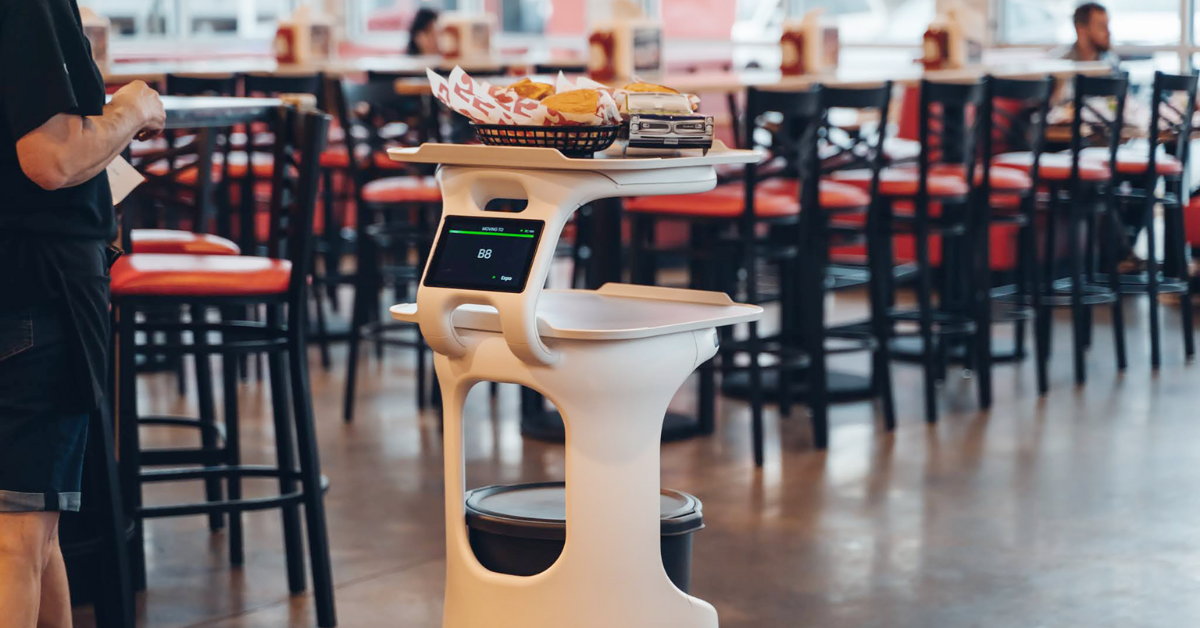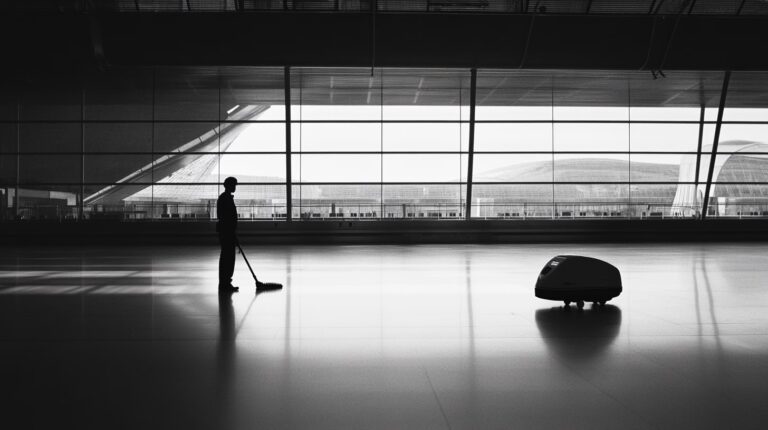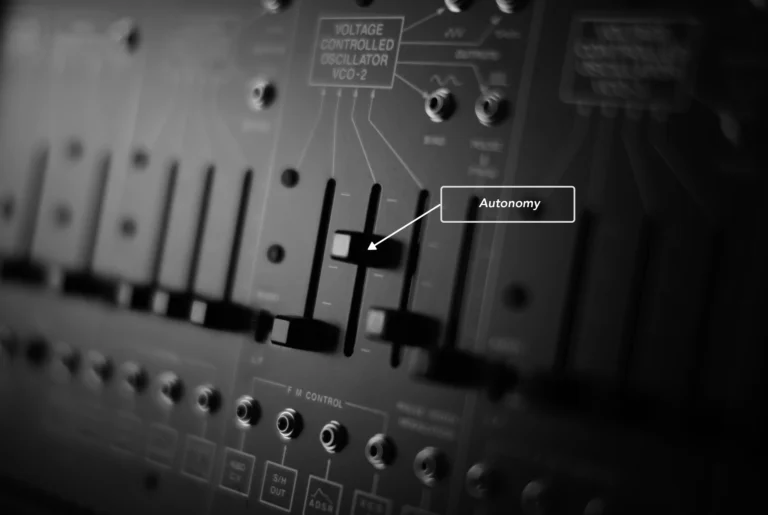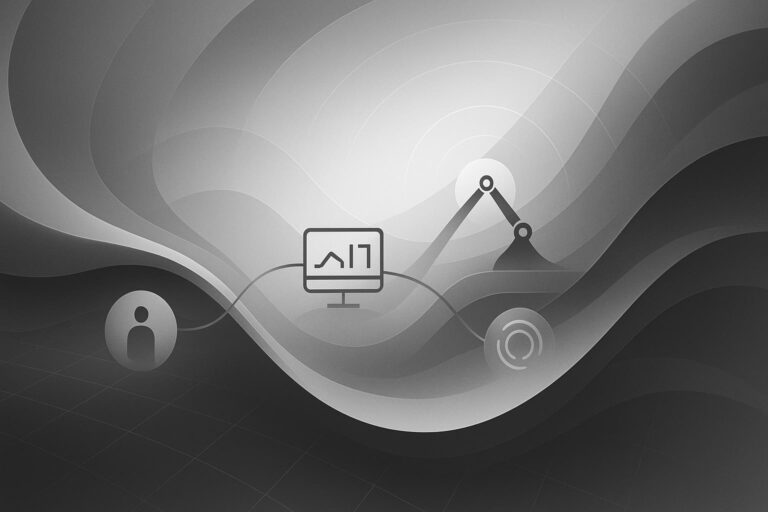If you can’t handle the heat, send the robots into the kitchen…or something like that?
Post-pandemic, multiple industries were hit with labor shortages that left businesses, particularly those that rely heavily on customer-facing roles, struggling to find enough people to fill jobs, and has left restaurants and hospitality businesses feeling the burn the most.
Since the pandemic, this industry has seen perhaps the sharpest decline in labor prospects, causing many businesses to shut down due to the scarcity of service and back-of-house employees. And even well into 2022, 3 out of 4 restaurant owners report they struggle to find and retain staff- all while society quickly warms up to going back out and tourism returns to pre-pandemic levels.
As there aren’t enough people to assist, the restaurant has turned to more technical solutions: robots.
A new meaning of flexibility
As humans continue to be a scarce resource in busy times, business owners are bringing robots into kitchens and front-of-house. Although it’s not as easy as simply purchasing a robot- but there’s a new robotics business model revolutionizing the way hospitality provides service: RaaS, or robots-as-a-service.
RaaS is answering the need for robotic assistance and revolutionizing the way the modern hospitality industry functions. Based on a subscription-based model, RaaS allows users to rent or lease robots based on their needs- enabling greater flexibility and scalability in the size of “staff” that can be adjusted as needs change.
“As our commercial infrastructure becomes more automated, RaaS operation components will become as commonplace as their digital counterparts,” says Juan Higueros, COO of Bear Robotics. “Especially in the hospitality industry, these advances will help bring about better working conditions and improve the interactions between customers and staff. We’re certainly excited to see how far this technology has come but we also believe we’re just at the beginning.”
By automating work across an array of industries, modern robotics companies have opened the door to improved efficiency, higher service capacities, and lowered labor gaps. Although humans will always offer advantages that robots cannot, such as building relationships and managing staff, compared to humans, robots do offer a few benefits especially valuable in the current labor shortage. Robots provide consistent work, especially when maintained and provided with software updates as needed (which RaaS models help to ensure is taken care of), don’t require breaks, and have been proven to reduce the presence of food-borne illnesses due to programming that sets guides for how long to cook food and the required temperatures.
The RaaS revolution has only just begun
As more businesses open up to the possibilities of RaaS, these tools are quickly becoming more and more commonplace in multiple locations, both front-of-house and in behind-the-scenes operations. In fact, this industry is expected to be worth over $41 billion in the next five years– and as automation solutions become more prevalent, they’re also becoming smarter.
From fully automated solutions for frying hamburgers to robotic greeters at shopping malls, RaaS is helping to not only pick up the slack but optimize processes that have previously never been touched by robotics, helping customers receive service faster and more efficiently than ever.
And with the help of RaaS businesses, hospitality businesses have the ability to deploy robotics quickly without the technical burden of owning autonomous machines.
Although we’ll likely never experience a fully automated restaurant experience, robots are just beginning to settle into their roles within the bustling environment with the help of RaaS models ensuring robots are more accessible to businesses that desperately need them- and revolutionize the way we now experience service.
Formant helps RaaS companies deploy, scale, and manage robotic fleets across multiple industries, including hospitality, agriculture, and logistics. Learn more about how we can help and request a demo, here.
About Bear Robotics
At the forefront of this movement, one robotics company has made it their goal to not only innovate smarter RaaS service solutions but to create more human-centered experiences in doing so. Born of restaurant industry veterans, Bear Robotics is a Silicon Valley startup with a mission to “elevate hospitality by automating the hustle behind it.” To accomplish this, they’ve introduced a high-tech suite of service robots named Servi.
“Servi is essentially an automated solution to allow service staff greater, more meaningful interactions with their guests,” says Juan Higueros, COO of Bear Robotics. “By automating repetitive work like running food and bussing tables, these robots allow servers to stay on the floor and connect more with customers. This not only eases stress for staff but also leads to better tips, higher ratings, and repeat customers. With less stress and more tips, this solution also combats labor scarcities by increasing retention. For these reasons, we believe RaaS solutions like these are becoming essential in today’s hospitality industry.”
Bear Robotics believes the future of hospitality hinges on human-centered experiences, but the aid of RaaS automation cannot be underestimated. By securing multiple contracts with industry leaders, they’ve been able to analyze the effectiveness of this technology across an array of restaurant types. From fast casual environments to sushi bars and beyond, these robots have supported a higher standard of service while allowing greater operation capacities and opening new avenues for enhanced revenues.



